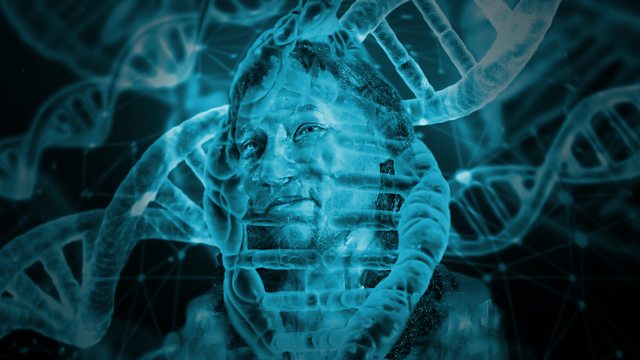The DNA of History
Historian Jerry Brotton asks how DNA science is transforming the study of ancient human history, and where it might take us.
Genetics and DNA analysis is revolutionising our understanding of human history, from our origins in Africa 100,000 years ago, to the extraordinary migration of people that now populate every continent on earth.
The ability to sequence the human genome and compare it with DNA extracted from ancient bones is enabling scientists to identify moments of contact between homo sapiens and Neanderthals, and even to identify extinct ‘ghost’ populations. It's transforming how historians understand human migration and cross-cultural contact. The rapidly changing technology means we can now all buy genetic test kits that claim to tell us ‘who we really are’, from how much of our DNA comes from Neanderthals to our immediate family ancestry and potential health risks.
In this programme, the historian Jerry Brotton asks how far this science is changing the study of history, and where it might take us. He asks if genetics is providing us with the ultimate tools to understand our historical origins - and perhaps our future - or if we're walking into a new era of bio-colonialism. Today, scientists are subject to accusations that they are harvesting our DNA and making genetic assumptions about people who have already suffered under European scientific racism and colonisation. These groups now debate the ethics of the bones of their ancestors being analysed to play their part in the evolution of modern western science.
From taking his own DNA test to visiting the Natural History Museum in London to examine 300,000 year-old skulls, Jerry uncovers the complex science of genomic sequencing by talking to pioneering geneticists in the field, including Chris Stringer and David Reich. He discovers an exciting story of our global origins, migrations and incessant mixing of people. At the same time journalists like Angela Saini and historians like Walter Pohl, who leads the new HistoGenes project in Vienna, express concerns that race and nationalism continue to haunt genomic analysis.
If historians are learning from the science of DNA analysis, what can scientists learn from historians when making assumptions about nations, race and the colonial past? What will the DNA of the historical future look like?
Presenter: Jerry Brotton
Producer: Simon Hollis
A Brook Lapping production for ����ý Radio 4
Image of 'Cheddar Man' credited to the Trustees of the Natural History Museum
Last on
Broadcasts
- Tue 10 Aug 2021 11:00����ý Radio 4
- Mon 16 Aug 2021 21:00����ý Radio 4

